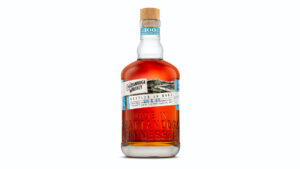
Chip Somodevilla/Getty Images
President Donald Trump’s first routine medical exam of his second term reveals he’s shed a few pounds since his 2018 check-up. Aside from a diverticulosis diagnosis and a few skin conditions, he’s reportedly in “excellent” health, according to the 2025 report.
Back in 2018, Trump’s total cholesterol measured 223 milligrams per deciliter (mg/dL), with an LDL (the “bad” cholesterol) level of 143. Johns Hopkins Medicine considers these numbers to be in the “borderline high” range. At the time, he had been taking 10 milligrams of rosuvastatin, a statin drug used to lower cholesterol. His White House physician at the time, Dr. Ronny Jackson, noted plans to increase the dose to improve Trump’s cholesterol profile.
Fast forward to 2025, and the results show a dramatic improvement. Trump’s total cholesterol is now down to 140, and his LDL has plummeted to 51. While the new report doesn’t mention how much his rosuvastatin dosage was increased, it does list an additional medication: ezetimibe. Unlike statins, ezetimibe works by preventing the absorption of cholesterol in the small intestine, offering a different mechanism to help keep levels in check.
Adding ezetimibe to a statin can be effective in lowering stubborn cholesterol

Trevor Williams/Getty Images
Statins are the most commonly prescribed medications for treating high cholesterol. Drugs like rosuvastatin work by reducing the liver’s production of cholesterol. As a result, the liver pulls more cholesterol from the blood to make bile, hormones, and vitamin D. Rosuvastatin is available in doses ranging from 5 to 40 milligrams, but the 40-milligram dose is typically reserved for people whose LDL cholesterol remains high despite lower doses (per Drugs.com). Common side effects of statins include headache, muscle aches, and fatigue. However, more serious issues such as muscle damage or liver problems can occur, especially in people over 65 or those taking higher doses.
To avoid these side effects, some people may choose to take ezetimibe over a statin to lower their cholesterol. Because ezetimibe works differently in the body, it can be used with a statin when the statin alone doesn’t lower cholesterol. Possible side effects of ezetimibe include upper respiratory infections, diarrhea, or tiredness. According to a 2016 review in Deutsches Ärzteblatt International, combining ezetimibe with a statin can slightly lower the risk of heart problems compared to taking a statin alone. The combination is also more effective at preventing heart attacks and strokes.
Should you take cholesterol medication?

Studio Romantic/Shutterstock
Some people can lower cholesterol without medication through lifestyle changes such as eating a fiber-rich diet, getting at least 150 minutes of exercise a week, losing weight, cutting back on alcohol, and quitting smoking. Because Trump abstains from alcohol and tobacco, Trump’s doctor in 2018 suggested that he change his diet and exercise more. While he did lose some weight, Trump’s daily diet remains less than stellar.
If lifestyle strategies don’t lower your LDL or boost your HDL (that’s the good kind), you may need to consider a cholesterol medication. Some people may have a genetic condition called familial hypercholesterolemia, where LDL cholesterol is poorly recycled through the body. Other people with the APOE4 genetic mutation may also have high LDL cholesterol and may require a cholesterol-lowering medication. You may also want to look at your overall risk of heart disease, stroke, and type 2 diabetes. A calcium score test can determine your risk of atherosclerosis, and a high score may necessitate taking a statin.
According to Yale Medicine, statins are considered safe and effective medications for lowering cholesterol. Even though about 15% of people experience side effects from statins, some may not tolerate them well. For some people, a statin isn’t effective or may need a boost from an additional medication like ezetimibe. Statins and ezetimibe aren’t the only cholesterol drugs. Other options for lowering cholesterol include PCSK9 inhibitors, bile acid sequestrants, and fibrates, though many of these options also have side effects.
Credit: healthdigest.com










